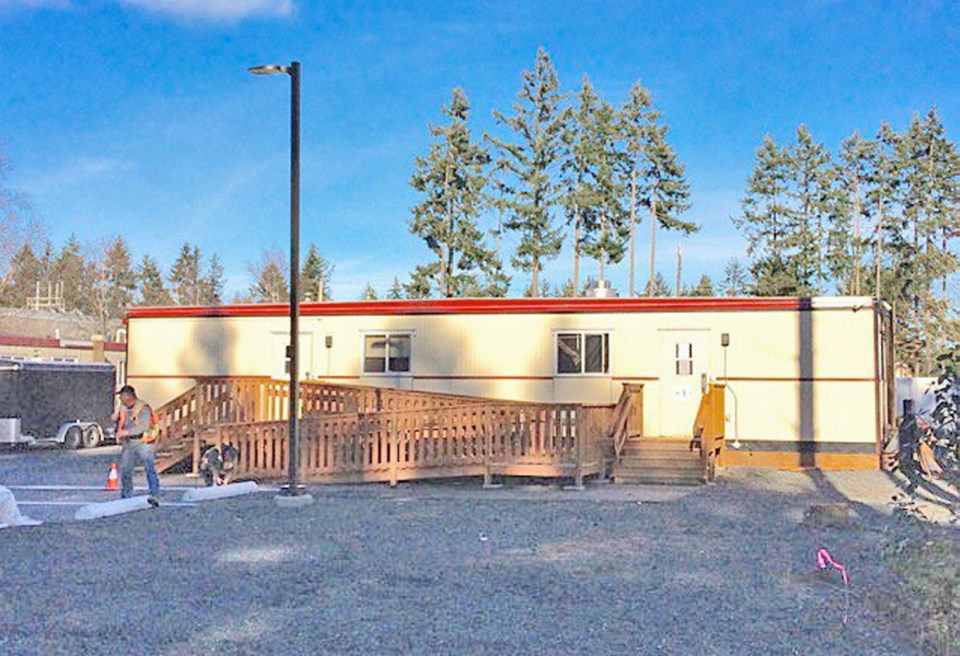A spike in crime around two Nanaimo supportive housing facilities for homeless people is causing tensions in the community, the RCMP say.
Nanaimo RCMP Supt. Cameron Miller told city council this week that police have been dealing with an increase in calls at temporary shelters, along with a rise in the number of homeless people.
B.C. opened two temporary modular supportive housing shelters after a tent city in Nanaimo, once home to 300-plus campers, was shut down late last year.
The shelters are at 6060 Labieux Rd. and 250 Terminal Ave., where a fire broke out on Monday night, displacing 20 residents.
In the area around the Terminal Avenue shelter, police responded to 1,097 calls for service between Nov. 20, 2018, and March 25, up from 660 for the time frame last year. That’s a 66 per cent increase.
Police responded to 803 calls for service around the Labieux shelter in the same months in 2018-2019, a 150 per cent increase compared to the 321 calls in the same time frame last year.
Nanaimo RCMP spokesman Const. Gary O’Brien said the numbers aren’t surprising.
“That’s to be expected. You look at any supportive housing project, you see an increase in calls,” he said.
O’Brien noted that some of the calls turned out to be unfounded, because neighbours were calling about a “suspicious person” who ended up being a homeless person pushing a shopping cart. Police have been educating neighbours about what constitutes an emergency call or a crime, he said.
There has been an uptick in drug trafficking in those two areas, O’Brien said, as well as an increase in disturbance calls, mischief to property, mental health calls and drug overdoses.
“The public is upset and they have a right to be upset,” O’Brien said.
Nanaimo Mayor Leonard Krog is just as frustrated by the issue.
“There is a significant level of frustration, particularly amongst people who live near the sites,” Krog said.
The B.C. government has funded housing for people with addiction and mental health issues, yet has left Nanaimo council “to deal with all the upset neighbours who have been the victims of a high level of crime and disruption in their neighbourhood,” he said.
Krog said there is a heightened sense of fear, some of it founded, some of it based on negative perceptions of people who are homeless and have mental-health issues.
He hopes the management of the two shelters will work to address the crime problems.
The Island Crisis Care Society operates the Terminal facility under a contract with the province and Pacifica Housing manages the Labieux site.
The Nanaimo RCMP detachment is creating a task force of up to six officers who will focus on cracking down on criminal activity around Terminal Avenue and Labieux Road.
“We are going after the drug dealers and the individuals preying on people living in there,” O’Brien said. “We’ll be targeting them 24/7.”
Police will also work with B.C. Housing, a community advisory committee, and block watch.
Housing Minister Selina Robinson told reporters Wednesday that Nanaimo’s challenges are unique, and similar social disorder around subsidized housing is not being seen across the province.
“We’re going to continue working with the housing providers and the RCMP to make sure that people’s needs are being met,” she said.



